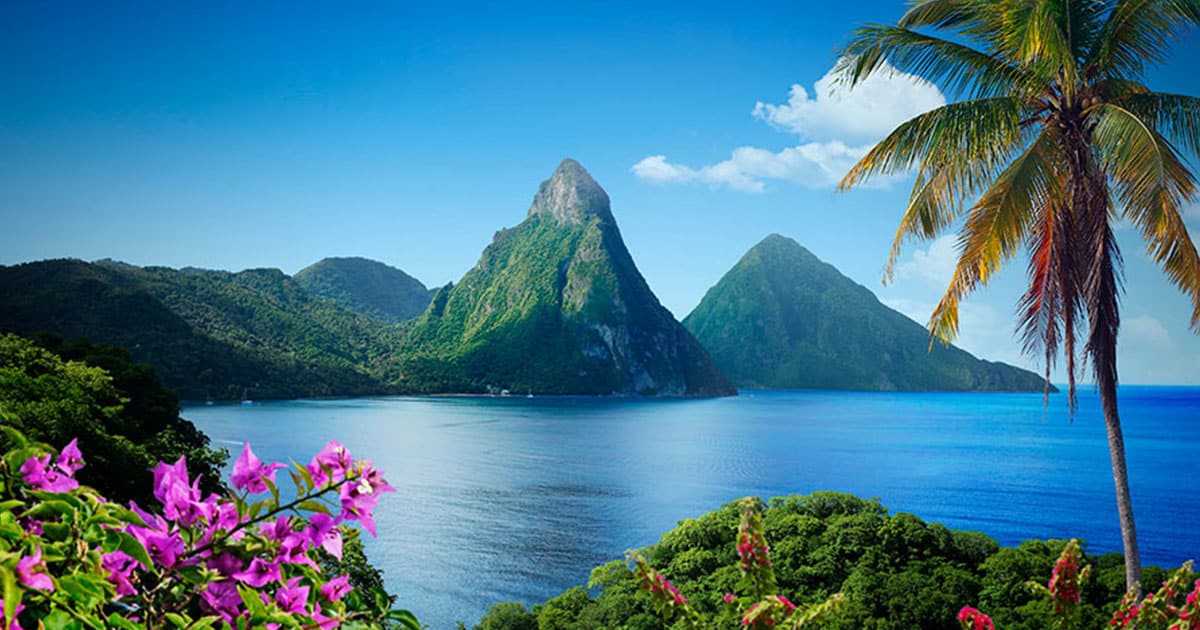St. Luca is a stunning island that often flies under the radar for travelers seeking tropical paradise. With its lush landscapes, vibrant culture, and pristine beaches, it's a destination that promises both relaxation and adventure. In this article, we will delve into the many facets of St. Luca, from its rich history to its breathtaking natural beauty, and why it should be on your travel bucket list.
As we explore St. Luca, you will discover the unique experiences it offers, from outdoor activities to cultural festivals. This island is not just about picturesque views; it's also about the people, the food, and the stories that make it a remarkable place to visit. Whether you're a beach lover, an adventure seeker, or a culture enthusiast, St. Luca has something for everyone.
Throughout this comprehensive guide, we will provide you with essential information, tips, and insights to make the most of your visit to this Caribbean treasure. So, let’s embark on this journey to uncover the wonders of St. Luca!
Table of Contents
- Biographical Overview of St. Luca
- Natural Attractions of St. Luca
- Cultural Experiences
- Culinary Delights
- Adventure Activities
- Travel Tips
- Sustainable Tourism in St. Luca
- Conclusion
Biographical Overview of St. Luca
St. Luca is a small island located in the Caribbean Sea, known for its stunning landscapes and rich cultural heritage. The island has a population of approximately 180,000 residents and is part of the Lesser Antilles. Its capital is Castries, which is a bustling city filled with markets, shops, and restaurants.
| Data | Information |
|---|---|
| Location | Caribbean Sea, Lesser Antilles |
| Capital | Castries |
| Population | Approximately 180,000 |
| Official Language | English |
| Currency | East Caribbean Dollar (XCD) |
Natural Attractions of St. Luca
One of the main draws of St. Luca is its breathtaking natural beauty. The island is characterized by its lush rainforests, mountains, and stunning beaches.
1. The Pitons
The Pitons are two volcanic spires that rise dramatically from the sea, offering breathtaking views and excellent hiking opportunities. The Gros Piton and Petit Piton are both UNESCO World Heritage Sites, making them a must-visit for nature lovers.
2. Anse Chastanet Beach
Known for its crystal-clear waters and vibrant coral reefs, Anse Chastanet Beach is perfect for snorkeling and diving. The beach is surrounded by lush vegetation, providing a picturesque setting for relaxation.
Cultural Experiences
St. Luca is rich in cultural heritage, influenced by its colonial past and African roots. Visitors can immerse themselves in the local culture through various experiences.
1. Festivals
The island hosts numerous festivals throughout the year, celebrating everything from music to food. The Saint Lucia Jazz Festival is one of the most famous events, attracting international artists and visitors alike.
2. Local Markets
Exploring local markets, such as the Castries Market, allows visitors to experience the vibrant culture firsthand. Here, you can find fresh produce, handmade crafts, and delicious street food.
Culinary Delights
The cuisine of St. Luca is a delightful fusion of flavors, influenced by Caribbean, African, and French culinary traditions.
1. Local Dishes
- Green Fig and Saltfish - A traditional dish made with unripe bananas and salted cod.
- Roti - A popular street food, often filled with spiced meats and vegetables.
- Callaloo Soup - A delicious soup made from leafy greens, often served with crabmeat.
2. Dining Experiences
There are numerous restaurants and eateries across the island, offering everything from fine dining to casual beachside bars. Don't miss the chance to try local dishes prepared with fresh, local ingredients.
Adventure Activities
For those seeking adventure, St. Luca offers a plethora of activities to get your adrenaline pumping.
1. Hiking and Nature Walks
With its lush rainforests and mountainous terrain, St. Luca is a hiker's paradise. Trails range from easy walks to challenging hikes that lead to stunning viewpoints.
2. Water Sports
The island's beautiful waters are perfect for various water sports, including kayaking, paddleboarding, and sailing. Scuba diving and snorkeling are also popular, with numerous dive sites to explore.
Travel Tips
Before you embark on your journey to St. Luca, here are some essential travel tips to keep in mind:
- Best Time to Visit: The ideal time to visit is during the dry season, from December to April.
- Currency: Make sure to exchange your money for East Caribbean Dollars for local transactions.
- Health and Safety: It’s advisable to check for any travel advisories and ensure you have travel insurance.
Sustainable Tourism in St. Luca
As tourism continues to grow, it's crucial to promote sustainable practices to protect St. Luca's natural beauty and cultural heritage. Many local organizations focus on eco-friendly practices, encouraging visitors to engage in responsible tourism.
Conclusion
St. Luca is undoubtedly a hidden gem in the Caribbean, offering a unique blend of natural beauty, rich culture, and exciting adventures. From the stunning Pitons to the vibrant local markets, there is something for everyone to enjoy. We invite you to explore St. Luca and experience its wonders for yourself!
Have you been to St. Luca? Share your experiences in the comments below, and don’t forget to share this article with fellow travel enthusiasts!
Thank you for reading! We hope to see you back here for more travel insights and guides.




